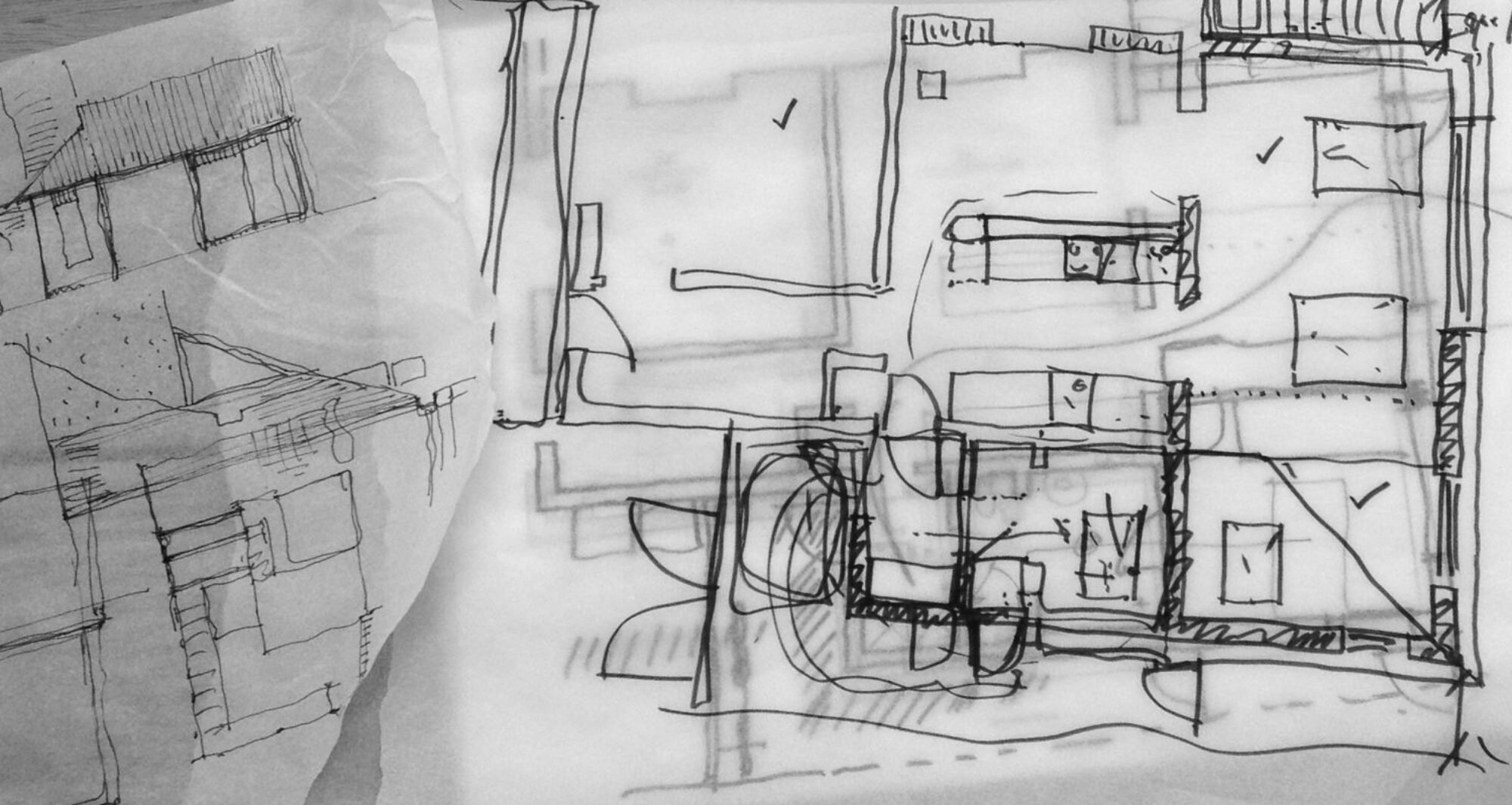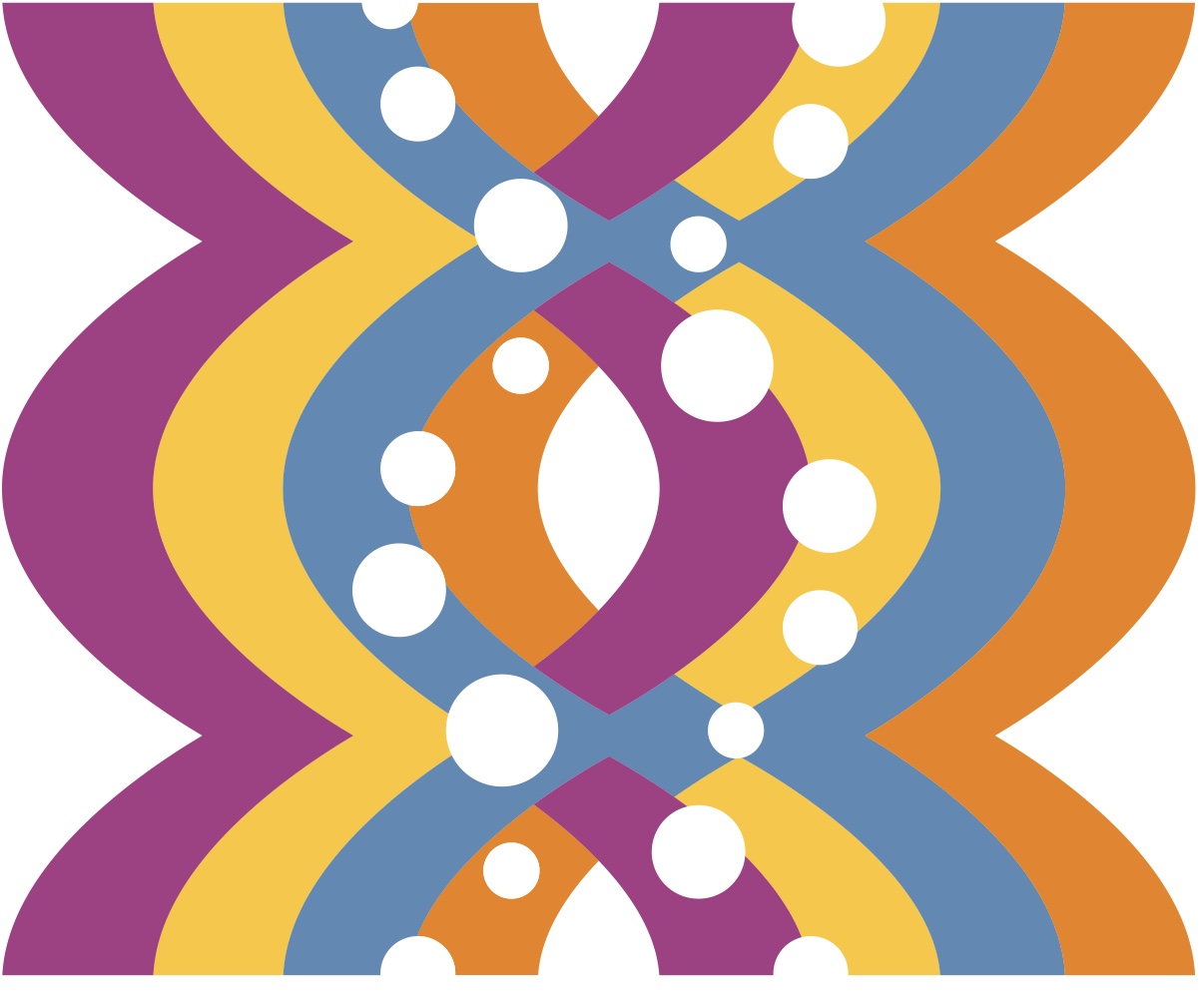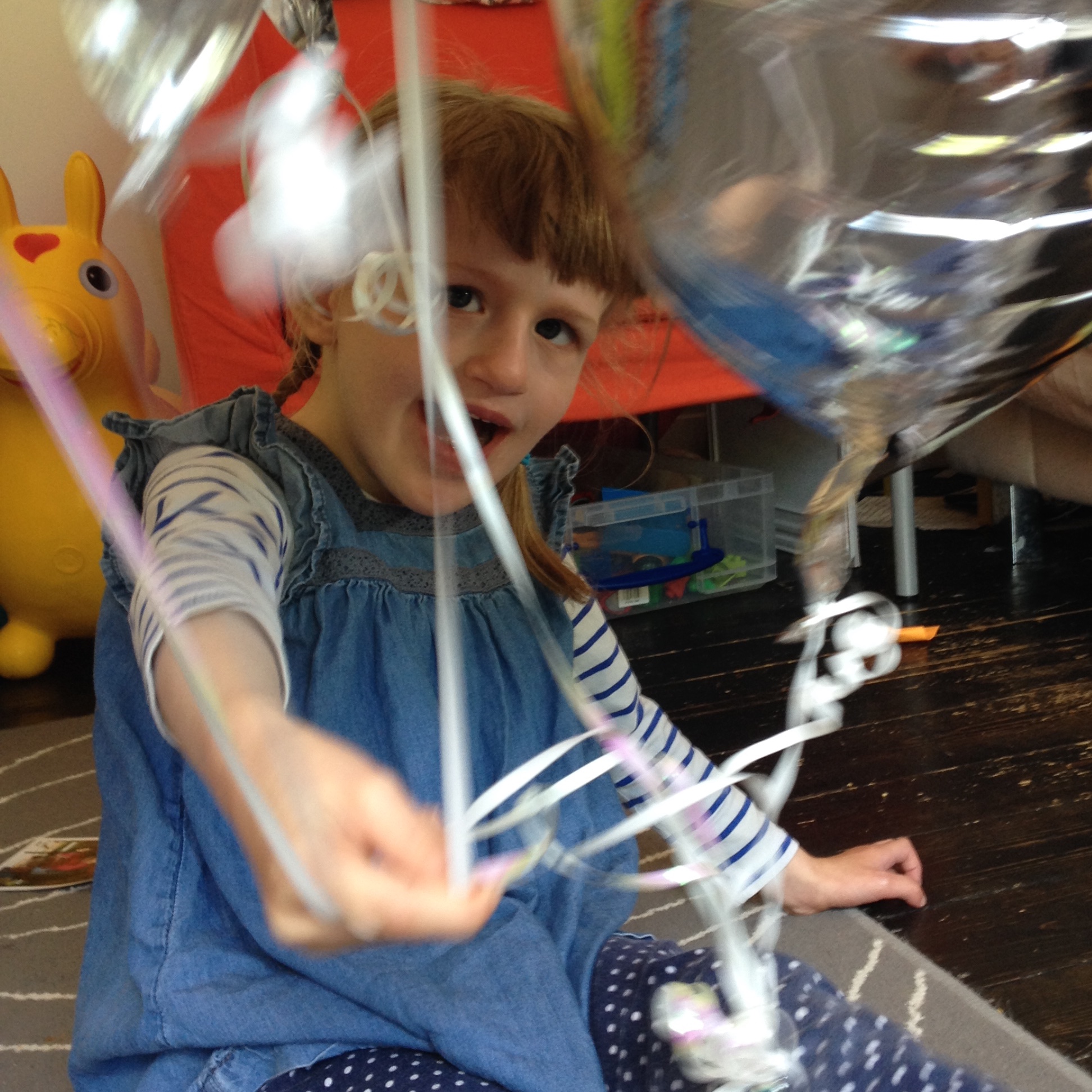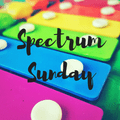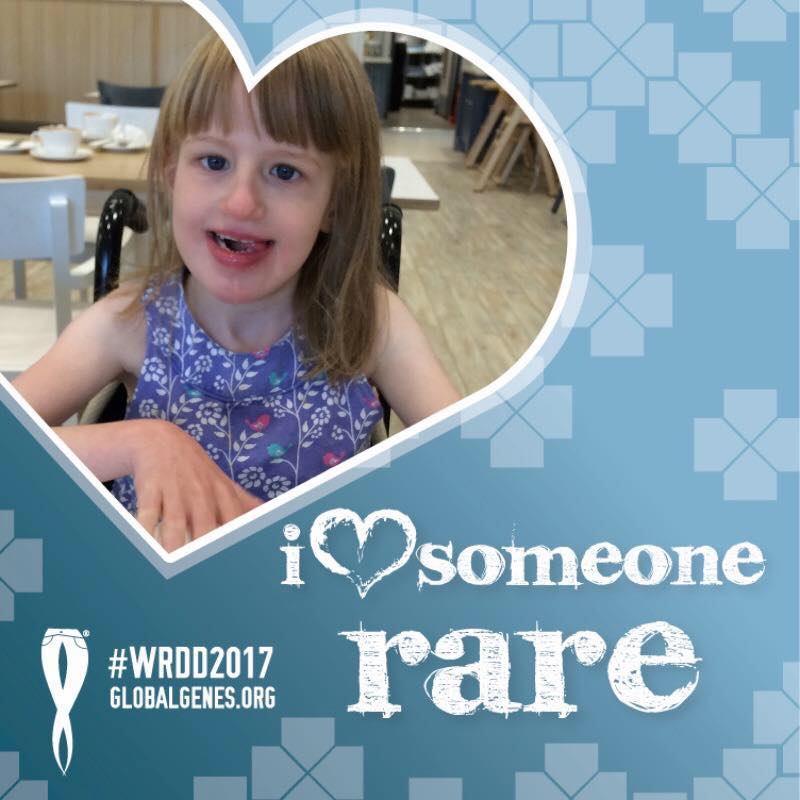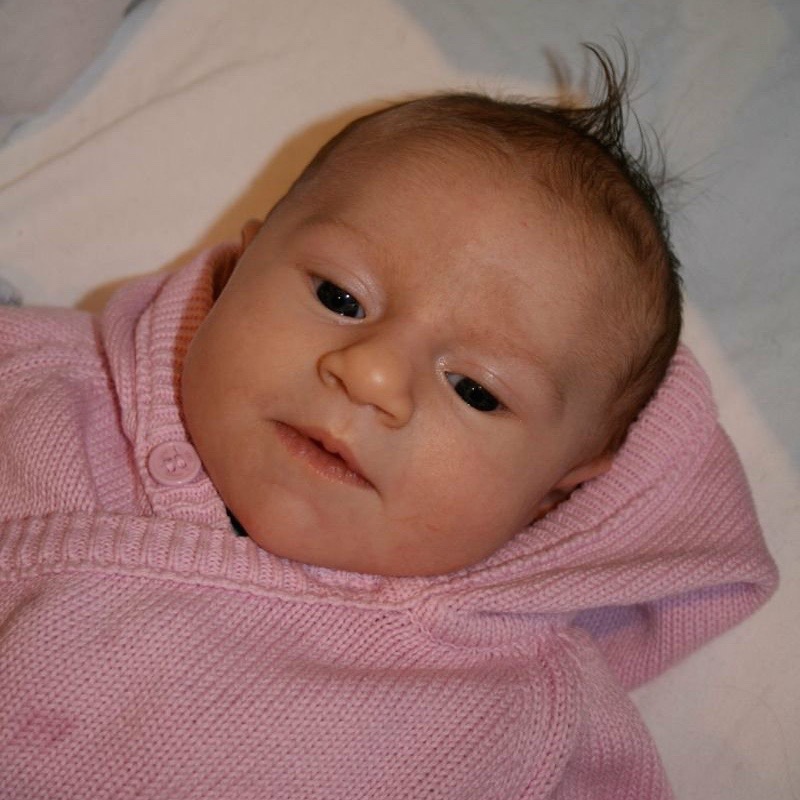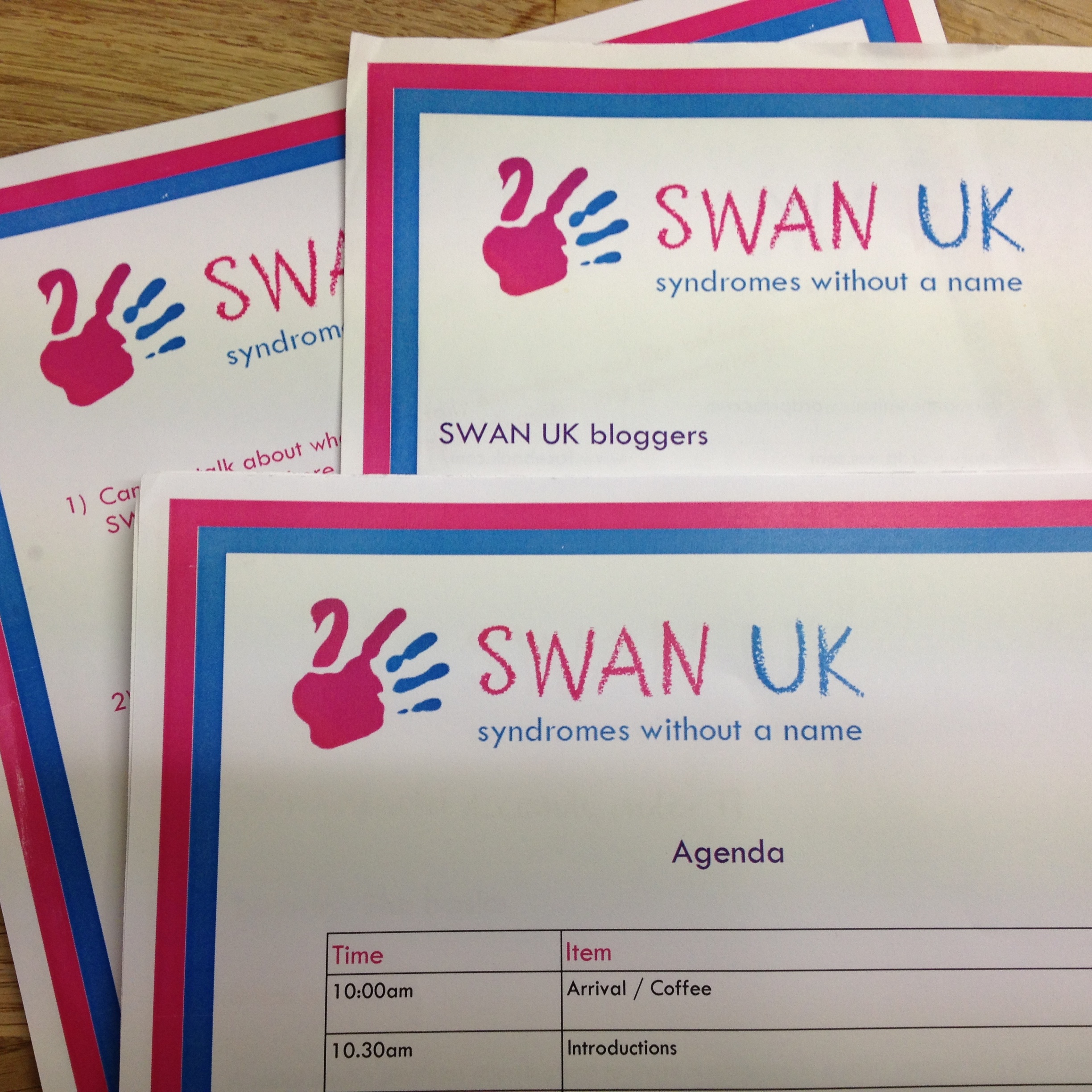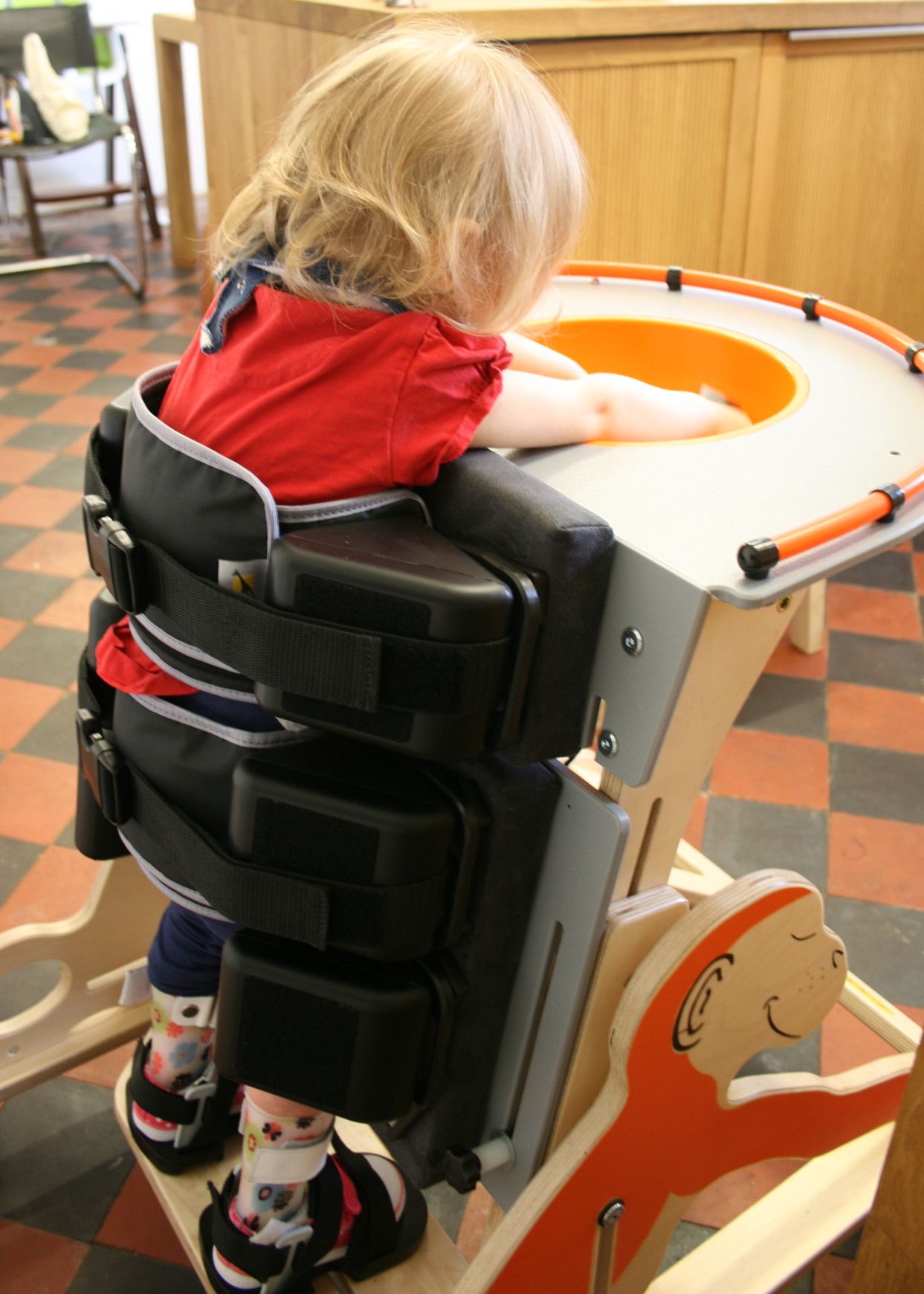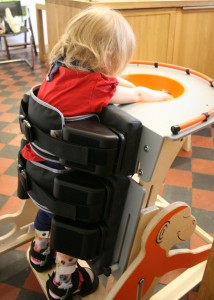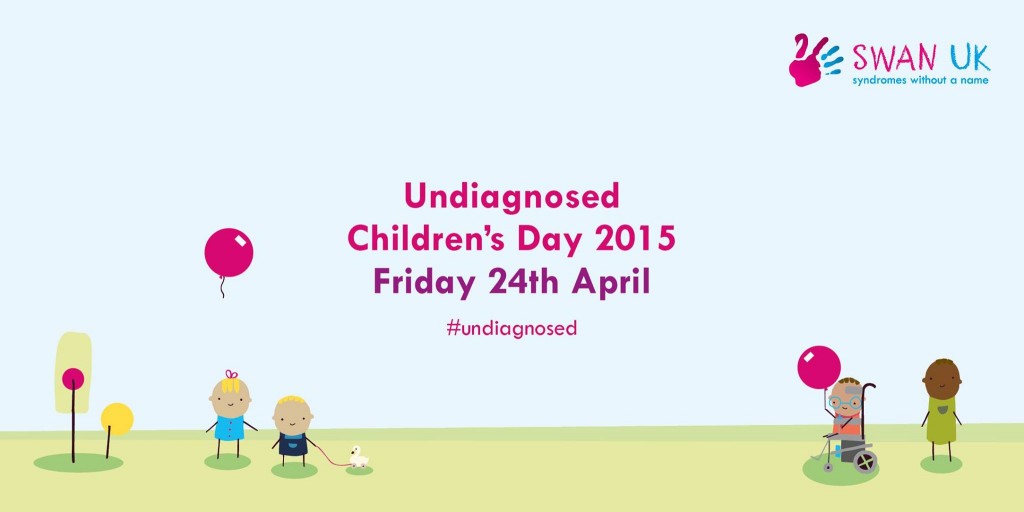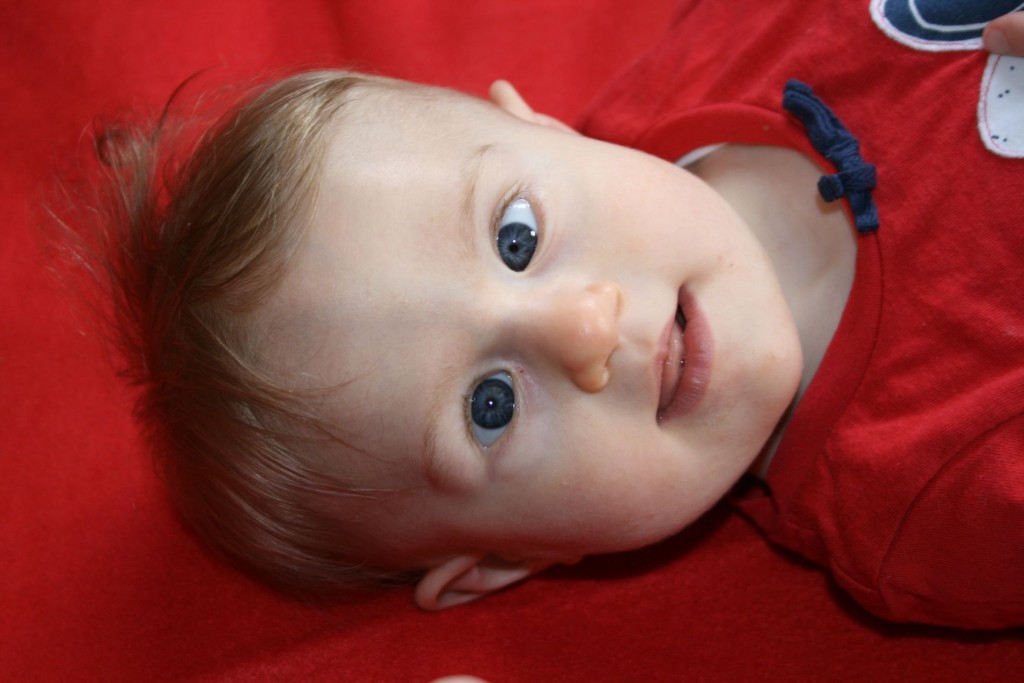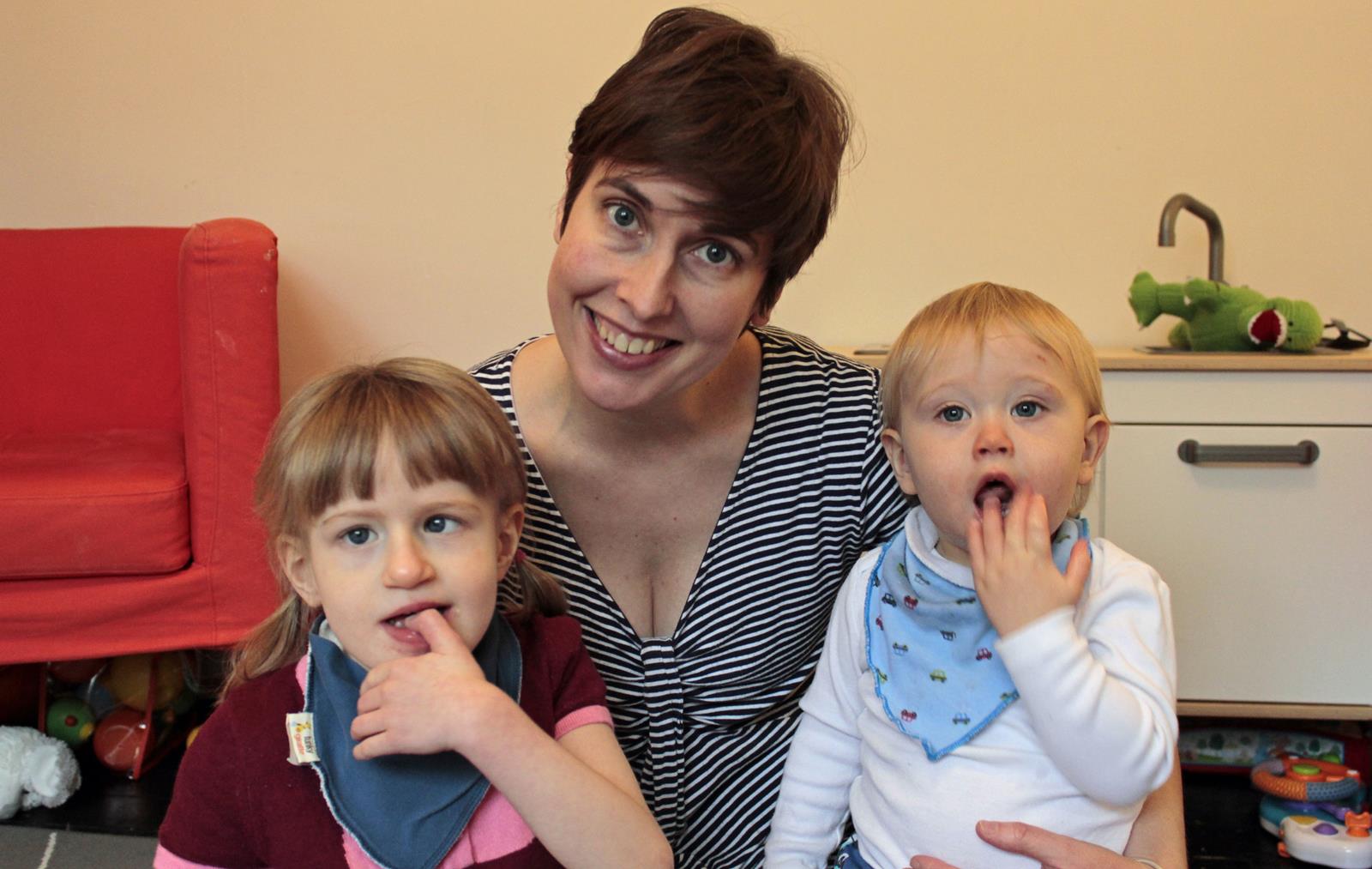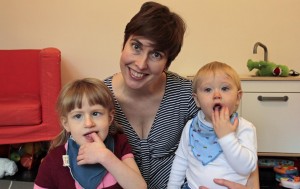SWAN UK is so much more than just a chat forum!
A post for Undiagnosed Children’s Day 2017
When J was born 6 years ago, our blissful newborn baby bubble was burst in a matter of days, by an echocardiogram, a skull x-ray and some chromosome blood tests before we even left the hospital. This was the beginning of a very confusing time and a long list of hospital appointments and tests, over many months and years, as each came back ‘in the normal range’, ‘clear’ or ‘negative’.
J’s main ‘symptoms’ (impossible to see in antenatal scans or in a newborn baby) are developmental and sensory disabilites, which gradually became more and more apparent as she grew older, but, especially as J was our first child, it was hard to tell if early symptoms (reflux, low muscle tone, heart murmur etc), were anything to be concerned about. As the tests seemed to say otherwise, we often felt like neurotic first time parents and, living in limbo, without a diagnosis felt very isolating. You can read a little bit more about that time in my post Monkeys & Swans
We felt like the only people in this position, and didn’t really feel like we fitted in regular parenting groups, but without a name for J’s condition, I didn’t know where to look for somewhere we would feel we belonged. If only I’d thought to google ‘Syndrome’s Without A Name’ or ‘Undiagnosed’ earlier in our journey as SWAN UK (Syndrome’s Without A Name), the only dedicated support network available in the UK for families of children with undiagnosed genetic conditions, was there all along!
We found SWAN UK just over 4 years ago, when J was a little over 2 years old and I can’t really explain how much of relief it was to find we were not alone. That there were people who ‘got it’. And that there were people we could turn to for advice and support. It truly was a lifeline of sorts.
I know Facebook has a bit of a bad press sometimes, and it can be a bit, ‘look at me and my perfect life‘, but it does also provide those who, for whatever reason, struggle to connect with others in real life a fantastic and easy to access medium to make those connections further afield.
SWAN was not my first dabble into support goups and internet forums. Before J and W came along, my husband and I went through an emotional few years of recurrent miscarriage and I found refuge in an amazing bunch of women in a miscarriage support forum on Babycentre website. Many of us have met up in real life and are still in touch now via Facebook. I guess it’s a similar scenario in that, although miscarriage is extremely common, people don’t really talk about it and you can feel so alone.
But what I also want to highlight today is that SWAN UK is not just another forum. Not just a webpage or a just a Facebook page. It’s all of those things, plus there’s so much more going on behind the scenes that help to support families like ours!
The main aims of SWAN UK are:
Develop and support a community of families of children affected by undiagnosed genetic conditions.
Support the development of high quality information and services for families of children affected by undiagnosed genetic conditions.
Raise public and professional awareness of undiagnosed genetic conditions and the unique challenges faced by affected families.
So what this looks like to me (and this is just me as a parent member, I know there’s lots more I don’t know!) is:
An amazingly supportive facebook group/forum with families from all across the UK! The group is really warm and friendly, and as it’s moderated by SWAN, and a host of volunteer parent reps, it’s not a group that suffers from confrontation or competitive parenting (like some other groups I’ve joined in the past and pretty quickly left again!). There’s usually someone around 24/7, so there’s pretty much always a listening ear. It’s a great place to come for advice, support and gentle ‘cyber’ hugs when you need them, as well as an place with encyclopaedic knowledge for asking totally practical advice such as types of equipment, filling out forms! There are also separate smaller regional groups, so people closer together can arrange informal meet ups and chat about specific issues in their areas. As well as allowing you to break the geographical barriers, another benefit of being online is that you can get involved as much, or as little, as you like, and are perhaps are more comfortable to speak openly with in a ‘virtual’ community than you’d be in real life. The groups are all ‘secret’ so membership cannot be searched for by anyone not in the group either, so you have anonymity if you want or need it.
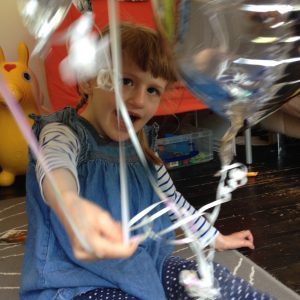 In addition to the forums, SWAN also organise and fund lots of family get togethers throughout the country! We’ve been to the zoo, a maize maze, to a soft play party and on a train ride over the time we’ve been members! I’ve loved meeting some of the other localish families in real life, lovely to meet the children, and them to meet each other, and I think as W grows older, meeting the siblings of other undiagnosed children will also become really important for him.
In addition to the forums, SWAN also organise and fund lots of family get togethers throughout the country! We’ve been to the zoo, a maize maze, to a soft play party and on a train ride over the time we’ve been members! I’ve loved meeting some of the other localish families in real life, lovely to meet the children, and them to meet each other, and I think as W grows older, meeting the siblings of other undiagnosed children will also become really important for him.
Balloons! This may sound a bit superficial, but I can’t tell you how lovely it is to receive a lovely gift of balloons, knowing our SWAN family is thinking of us and providing lots of fun! Who doesn’t love a balloon!? SWAN try to send balloons out to children in hospital, going through a particularly rough time and occasionally randomly just to make a child smile! As you can see in the picture, the balloons we received went down very well!
SWAN UK do a lot of work with professionals too, to raise awareness within the disciplines that families will come into contact with on their childhood journey, from Midwives and Health Visitors to GPs and NHS decision makers about the added complexities families face without a diagnosis, and pressing for better co-ordinateion of health care and social care. Some key successes they’ve been integral in, in this area are the appointment of a specialist undiagnosed nurse specialist at Great Ormond Street and a specialist Rare Disease unit at Birmingham Children’s Hospital!
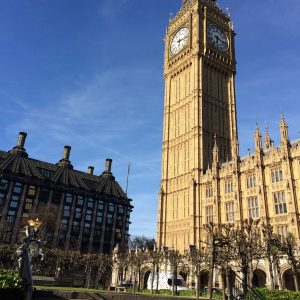 SWAN UK, and their parent organisation Genetic Alliance, are also working with the government on policy around research, resources, services, treatment etc of rare genetic and undiagnosed conditions. Genetics is such a new and fast moving science there’s so much happening that could make such a difference! I got to see a little bit of this work first hand last year, when SWAN UK parent reps and bloggers were invited to attend the first report of a new APPG (All Party Parliamentary Group)! So amazing to see Genetic Alliance and SWAN influencing at all levels to help improve services for our families and really interesting to see parliament at work too!
SWAN UK, and their parent organisation Genetic Alliance, are also working with the government on policy around research, resources, services, treatment etc of rare genetic and undiagnosed conditions. Genetics is such a new and fast moving science there’s so much happening that could make such a difference! I got to see a little bit of this work first hand last year, when SWAN UK parent reps and bloggers were invited to attend the first report of a new APPG (All Party Parliamentary Group)! So amazing to see Genetic Alliance and SWAN influencing at all levels to help improve services for our families and really interesting to see parliament at work too!
So the reason I’m writing this today is it’s Undiagnosed Children’s Day! A day to make a group effort to let the world know about the work SWAN UK do! They already support 2000 families of children with undiagnosed conditions but, as 6000 children are born every year with no diagnosis, there are many more they could be supporting!
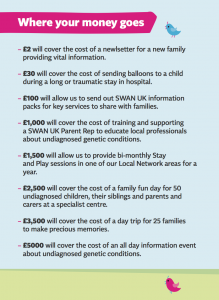 SWAN UK are asking us to be detectives today and help find those families (like ours) who could benefit! Help us spread the word!
SWAN UK are asking us to be detectives today and help find those families (like ours) who could benefit! Help us spread the word!
If you know someone you think might benefit from joining the swan community please do pass this on, and if you have a child with an undiagnosed condition please do join the community! It may sound overly gushy, but SWAN UK really is like a big friendly (and non-judgemental!) family and I don’t know where we’d be without their support! You can sit in the background quietly, or get stuck into chat in the forum, either way SWAN is there to support you and they are out their advocating for all of us!
SWAN UK relies on grant funding and donations and this list shows where some of this money is needed. If you can please help them keep up the great work for families like ours!
Find SWAN at:
Website: www.undiagnosed.org.uk
Email: info@undiagnosed.org.uk
Facebook: @SWANchildrenUK
Twitter: @SWAN_UK
Instagram: SWANchildrenUK
Rare but not alone
We are members of SWAN UK, a fantastic support network for families of children without an overarching diagnosis for their medical conditions and/or disabilities, support for families of those with a Syndrome Without A Name.
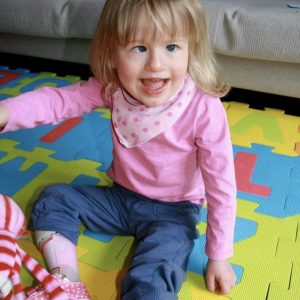
We didn’t find SWAN (run by the charity Genetic Alliance) until EJ was 2 years old, when we found a leaflet in our enrolment pack for the DDD study. Until this point all the standard NHS genetic tests available had drawn a blank in identifying any particular reason for her developmental delays and we had felt pretty confused and alone. (You can read a bit more about this uncertain time here and here.)
The DDD (Deciphering Developmental Disorders) study is a far more detailed method for genetic testing than the NHS can offer (which coincidentally is being carried out just down the road from us at the Sanger Institute in Cambridge!), using new technologies to try to identify particular gene changes responsible for developmental disorders.
“Instead of having a targeted test for a particular change, we therefore have to look across all of the child’s genome to find out if and where a change occurred which caused the disorder” – www.ddduk.org
This analysis of the whole genome can take some time…..
…. and in the meantime we have become quite comfortable being part of our big ‘SWAN’ family. We’ve found help, advice, comfort, true friends and love in our extremely diverse community, and have celebrated Undiagnosed Children’s Day at the end of April each of the 4 years since we joined.
However this year is a little different.
And I’m actually writing this particular post to coincide with another awareness day, Rare Disease Day, because (quite out of the blue as we’d almost given up hearing anything at all!) we received a letter via EJ’s geniticist that the DDD study has found a gene change that is the probable cause of EJ’s disabilities! So, quite unexpectedly EJ may have become a ‘graduate’ SWAN (although I am relieved to say that graduate SWAN families are most welcome to remain part of the big SWAN family – phew!)!
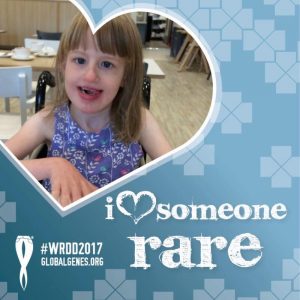 Of course you are always advised to steer clear of Dr Google, but when it’s been 5 years since investigations began, you kind of can’t not google!? And also, when you are dealing with something so rare, and so new, there’s almost as much information out there in the hands of Dr Google as there is available to the medical professionals (granted I’m not quite as qualified to interpret it all as the real doctors!)!
Of course you are always advised to steer clear of Dr Google, but when it’s been 5 years since investigations began, you kind of can’t not google!? And also, when you are dealing with something so rare, and so new, there’s almost as much information out there in the hands of Dr Google as there is available to the medical professionals (granted I’m not quite as qualified to interpret it all as the real doctors!)!
I’m not sure if there is a right way to give a family a diagnosis, especially such a long awaited one. I’m not even sure if this counts as a diagnosis as such? Too fledgling a discovery even to have a name, other than the gene name, KAT6A. We were told via letter, which may sound a bit blunt to some, but I think I would have worried myself silly having received a more cryptic letter asking us to attend an appointment at a later date, or a telephone call, which always seem to come at an awkward time.
I think it probably depends on the news.
The information we were given was not frightening to us. Internet searches of EJ’s gene glitch brings up almost an exact list of the symptoms we already knew about for her. I think if there had been more worrying symptoms listed I might feel differently, and perhaps the news would have been delivered differently?
After Dr Google, our next move was to check Facebook to see if there were any other families out there, and, lo and behold! There are! So far, around 70 (mostly children) all across the world, including a few others in the UK, who have disabilities almost exactly like EJ! Some of the families have even gathered together the information known about the KAT6A gene change on this new website!
I’m not yet sure how much difference having this information will make. In some ways a relief? We may learn some useful things through research into the gene change… issues around health? Perhaps improved strategies to help EJ reach her potential?
However the loveliest thing about the diagnosis so far is finding those other families, and also discovering some of the ‘behavioural traits’ linked to the condition are ones that we know & love!….
A happy demeanour! Always smiling, loving cuddles, giggling and laughing often!
And so it seems we are embarking on another stage of our journey….. but always thankful to have our SWAN family travelling with us!
slipping through the cracks
A post for Undiagnosed Children’s Day, 29th April 2016….
The very nature of an undiagnosed condition (a Syndrome Without A Name) is that it is not the same as any other that’s been identified.
Of course, every single one of us is different (whether deemed to have any physical or mental health condition, disability or not). And people who are diagnosed with a syndrome can be affected by it in very different ways (in the case of rare disease there may be very little known about the condition at all!), so diagnosis rarely gives a full picture.
And perhaps there are disadvantages to being ‘labelled’? Largely around preconceptions and conclusions that are leapt to about how YOU may be affected – when in reality there’s likely to be a huge variation from person to person.
However there are advantages in diagnosis too, which I’d say outweigh the disadvantages no matter how rare the condition, not least because it can help to stop you slipping through the cracks.
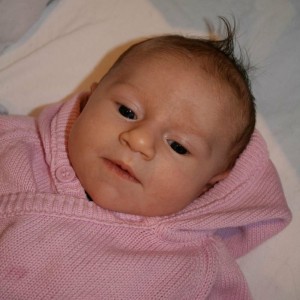 My antenatal tests gave no indications that EJ would be anything other than ‘a normal healthy baby girl’ – a commonly used phrase, and one that pregnant women are so eager to hear.
My antenatal tests gave no indications that EJ would be anything other than ‘a normal healthy baby girl’ – a commonly used phrase, and one that pregnant women are so eager to hear.
In the past perhaps I hadn’t really considered the implications of the phrase, how it separates ‘normal’ from, from what? abnormal? different? unique?!
As a phrase it now it tends to make me wince, because….
What is ‘normal’?
Indeed, what is ‘healthy’!?
When EJ was born, a few ‘issues’ rang some bells with the neonatal paediatrician and he ordered chromosomal blood tests while we were on the maternity ward. These came back ‘within the normal range’ so we were sent home reassured there was nothing ‘wrong’ with our new little baby bundle.
I can totally see how at this stage, with no evidence to suggest EJ wasn’t going to follow the typical child development path, it wouldn’t necessarily have been appropriate (or indeed helpful!) to launch into the full complexity of genetics and confuse a couple of tired and anxious new parents. However there was obviously in inkling there…..
…..and very gradually EJ began to collect more symptoms, including missing most of the typical development milestones, and her differences became more & more noticeable the older she got, and she began to stand out from the baby crowd.
The added complexity for us was that we moved NHS trust when EJ was 6 months old, so we had to start afresh with a new set of health professionals. Our GP notes of course would follow, but not instantly, and apparently notes and test results from hospitals don’t, they have to be requested specifically!
Thankfully we found our new GP surgery to be fantastically supportive and EJ was referred to our new hospital without fuss.
We then embarked on a very confusing journey of test after test, normal results, clear scans and more normal results. Being passed from one department to another, in and out of hospital clinics and community services.
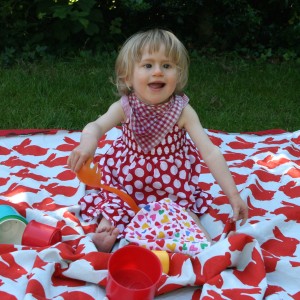
EJs symptoms (even her heart defect) could be related to ‘normal’ paediatric issues, so rather than being joined up, as they would more likely have been had she been diagnosed, were left feeling confused, even neurotic and paranoid about reading too much into things. We didn’t really know what questions to ask or even who to ask…..
We were also left feeling guilty and worried that perhaps we had done something wrong? Being asked by every new clinic the same questions about her history, even going over and over how my pregnancy had gone – did I drink or smoke or take drugs in pregnancy? – is all pretty guilt inducing! We’ve even been asked several times if me and her dad are related! – I know these questions have to be asked, but perhaps once is enough….? Perhaps a clear crib sheet at the front of medical notes!?
And all the while (we had a lot to take in, so unless things were spelled out it may have washed over us!) I don’t remember anybody saying (given her symptoms) that it was pretty likely that EJ did have some form genetic disorder no matter what the results of the tests. In fact I’m not even sure how many of the non medical professionals involved were aware that living with an undiagnosed condition is such a common state of being, sometimes not just a stage while you wait for meaningful test results (6000 children a year are born with an undiagnosed condition!)….I’d even hazard a guess that some may have suspected it was all in our minds…. as they (like us!), would have expected something to have come up in some of the tests EJ’d had.
The health, social care and early years education system can be complicated and confusing enough for anyone, but I think where having a child with an undiagnosed condition differs from those with known syndromes, even rare ones, is that without a ‘name’ you feel like you are constantly trying to convince people that there really is ‘a thing’. Whether that’s a thing (as for EJ) affecting her sensory processing and in turn her development, or a thing linking a group of medical problems together. Many, like us, feel isolated, perhaps not feeling like you qualify to join ‘additional’ needs groups (but can’t relate properly with mainstream), don’t qualify for help, and that perhaps you are a fraud for taking up valuable NHS time?!
Many undiagnosed children have extremely complex medical needs, many from birth or even before they were born, so unlike EJ will have been ‘in the system’ from the beginning – but, from what I understand, this doesn’t necessarily mean care is better co-ordinated. For many, one medical symptom will dominate, and that medical specialty might take the lead in fire-fighting that need, but they are not necessarily the right team to be investigating the cause and leading on the overall care of the child.
I really don’t mean any of this to sound critical of any of the individual people, teams or clinics involved, or indeed the NHS or social care. Far from it! Overall we have had wonderful care! We really do understand the massive strain and funding constraints on the NHS and social care, and the limitations of working within a framework of approved techniques, medications and therapies. However that’s not to say there couldn’t be big improvements in coordination of the care, particularly for patients with undiagnosed conditions. More coordination could also bring more efficiency (and less frustration!) for all involved, freeing up those in the caring and medical roles to ditch some of the admin and get on with what they want to do, providing support, treatment, therapy etc
With many known syndromes there are often typical symptoms and treatments, and you’d be put in touch with key teams, relevant tests carried out and early intervention therapies begun from the start with a coordinating specialist overseeing the care.
With a rare condition a plan is less likely to be in place, but at least there is a focus, something tangible even if still confusing. There is likely to be medical research going on, some interested specialists (which can never be the case for undiagnosed patients as they are all so different, we are all hanging around hoping to grasp at the coat tails of some identified condition).
Being diagnosed also gives you the opportunity to meet and engage with other families in a similar position, however few of them there are. It’s such a human need to be able to share experiences with others who understand – which is why SWAN UK is so important to us undiagnosed families, because although we are all so very different, we do share challenges and the confusion of the unknown.
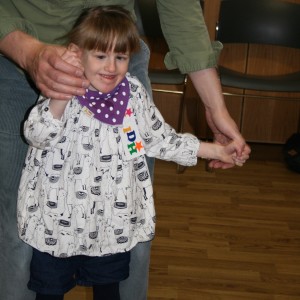
EJ’s long list of symptoms don’t really help give a full picture of her condition since they can be attributed to many other known syndromes and ‘normal childhood issues’ which means that we don’t know what the future might hold. In many ways I find this liberating, as there are no preconceptions about what her life and achievements will be. However it also raises difficult questions – Will she walk (what adaptations will we need to make in our home)? Will she talk (will we ever be able to communicate)? Will she be able to live independently (how much support or not will she need – what happens when me and her dad are gone!?)? Will she develop any associated health problems? Will she have a shorter life expectancy (actually I don’t think I want to know the answer to this last question!)!!!?
Genetics is just so bloomin’ complicated! We’re just at the tip of the iceberg in this area of medical research and, in the meantime, a long way to go to make sure it is acknowledged across the board that even if the tests don’t find an answer, it doesn’t mean there’s not a genetic glitch hiding somewhere, and that the family affected still needs the same level of help, support, treatment and therapies as those who are diagnosed with known conditions.
Last Undiagnosed Children’s Day a very exciting announcement was made for a new Roald Dahl SWAN nurse post at Great Ormond Street Hospital (there’s a great clip on this link of an interview with the super campaigner behind Just Bring The Chocolate about the new position). And also since then two new specialist nurse positions at Birmingham children’s hospital for a rare disease specialist nurse and a genetics specialist nurse! We in the SWAN community are holding our breath hoping these new roles will show the NHS just how much of a difference these coordinating speciast roles can make – and hoping they can be replicated at all the children’s hospitals and major teaching hospitals….. no pressure new recruits!
In parallel it’s so important that awareness is spread generally, and among frontline professionals that will come into contact with new parents (midwifes, health visitors, SENCos etc), that being undiagnosed is actually a ‘thing’ and that there is help and support out there in the form of SWAN UK!
This blog post forms part of an amazing series by SWAN parent bloggers for Undiagnosed Children’s Day 2016. Check them out via the blog hop link below!
And if you can, please support the work of SWAN UK via their website
campaigntastic
A couple of weekends ago was a big first for me! I spent a whole day and an entire night in a new city without my family! And everyone was ok – not just ok, we all enjoyed it – woo hoo!
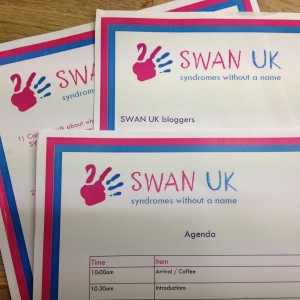 It was a fab weekend. The first (hopefully of more to come!) workshop of SWAN UK parent bloggers. We were there primarily to discuss the upcoming Undiagnosed Children’s Day (UCD), on 29th April, but also to talk about all things blog and social media and how to spread the word about living without a diagnosis, how that affects children, their families, access to health services, education and social care. With the very lovely bonus that I got to meet a bunch of amazing, determined, funny, normal and unique blogging women! – in real 3D life! – and those of us staying overnight took the opportunity to go out for a lovely meal, a chat (and of course a few glasses of vino blanco!)!
It was a fab weekend. The first (hopefully of more to come!) workshop of SWAN UK parent bloggers. We were there primarily to discuss the upcoming Undiagnosed Children’s Day (UCD), on 29th April, but also to talk about all things blog and social media and how to spread the word about living without a diagnosis, how that affects children, their families, access to health services, education and social care. With the very lovely bonus that I got to meet a bunch of amazing, determined, funny, normal and unique blogging women! – in real 3D life! – and those of us staying overnight took the opportunity to go out for a lovely meal, a chat (and of course a few glasses of vino blanco!)!
It was so funny to be out and about without my little ones, while talking a lot about them! I had to stop my auto-pilot manoeuvre, when sitting down at the table, to move all the cutlery and glasses out of Twinkle’s reach!
The workshop was really great, the fab SWAN coordinators were totally on it, and as well coming up with lots of exciting ideas for UCD that we can work on collectively, it has left me energised and ready to get writing more for my own blog and given me ideas that I can transfer to some of my own ‘campaigns’!
An aside to the day for me was that, after noticing a flurry of people asking about house adaptations on the SWAN parent forum, I put it out there to the bloggers attending the workshop that I’d be happy to have a chat over lunch or dinner about accessible design and the grant process. It’s pretty telling about the state of the DFG (Disabilities Facilities Grant) process, that out of the 11 people due to attend the workshop (excluding me, another designer & the SWAN reps!), FIVE (yes 5!, almost 50%!) of them I’ve either talked to in the past, or they wanted to talk to me on the day about adaptations!
I would love to be able to give more helpful advice about the actual grant process, but much as I’ve tried to actually understand the system, the more I read, or am told, the more confusing it seems to get! The first thing seems to be that although there is a core national critera, each county appears to have different ‘rules’ about the detail, and finding those rules…..hmm, Franz Kafka springs to mind!
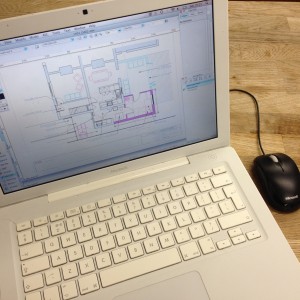 Our own experience has, so far, been good. Our OT has been great and the slow progress is mostly our own fault as we have opted to take control of the reigns, do our own drawings, planning application and to administer the construction work. However this is my ‘day job’ (or was until I had the kids!), so I’m confident about doing this. Most people don’t have past experience of building projects and have to rely on the advice & services given by the local authority, which as I say, seems to differ greatly from county to county and doesn’t appear (ever?) to include any architectural design advice!
Our own experience has, so far, been good. Our OT has been great and the slow progress is mostly our own fault as we have opted to take control of the reigns, do our own drawings, planning application and to administer the construction work. However this is my ‘day job’ (or was until I had the kids!), so I’m confident about doing this. Most people don’t have past experience of building projects and have to rely on the advice & services given by the local authority, which as I say, seems to differ greatly from county to county and doesn’t appear (ever?) to include any architectural design advice!
Many of my friends are telling me that the advice they have been given may improve accessibility in specific ways, but also compromises their homes in other, more fundamental ways. With the grant (understandably) being a limited sum, it so often doesn’t cover the work required, so people are having to look into borrowing more, to do work that will help in some ways but will ‘devalue’ their houses, leaving them stretched financially and potentially in a worse position if they have to sell and move home. A few have just opted out completely and are struggling on with no accessibility improvements.
I’m re-energised to try and get a message to those who can make a difference in this process. A more cohesive grant process is needed, a more holistic attitude to the house and family and a long term sustainable view.
I’m compiling a to do list to start ‘shouting’ more loudly about this issue. Of course, if there were more homes built to inclusive design and accessibility standards, people would have the option to move house, but there’s not – there’s really little or no choice in most areas!
First on my list I think is to start gathering case studies and survey experiences to try and demonstrate where and why improvements are needed!
So….who want’s to tell me their story!?
monkeys and swans
For Undiagnosed Children’s Day 2015
We said goodbye to EJ’s standing frame last week (the monkey – imaginatively named after the big plywood monkeys which sandwiched her). EJ is getting much stronger at standing up herself, so we prefer to practice dynamic standing with her, supporting her to play at her little kitchen or trying to encourage her to cruise. She has also ‘graduated’ into a gait trainer/walking frame (although at the moment she mostly sits down in it!) and has begun taking a few steps at a time.
EJ hasn’t been using the monkey for a while, so it has been kicking around our kitchen tripping me up and generally getting in the way (they are not small things!). I was really looking forward to it being taken away, help another little person, and give us some much needed space back (the gait trainer is also not a small thing!). However, as I was giving it a wipe down, and checking all the bits were there ready to be picked up, I got a bit emotional!
EJ’s condition is not something that we knew about when she was born.
All her antenatal tests were all ‘normal range’. There were a few hairy moments during labour and her birth and in the first few weeks, some of which prompted the paediatrician to order some chromosomal tests before we left the hospital in the first week, but they came back ‘all clear’ – oh ok!? – she was just a typical new baby then?
We were first time parents, so had nothing to compare our experience with, but gradually things didn’t feel as they should.
EJ began missing the milestones in the little red book and falling behind her little baby peers. It was noted at her first couple of checks but we were told it was probably nothing, they all develop differently (true), she is just a little delayed and a little floppy (I guess….?), it could be her her reflux (oh! that make sense), it could be the hole in her heart making her body work harder (so when that’s repaired……?)…..
But she’s falling further behind – ok – more tests (more ‘normal’ results)…….
It was all very vague and confusing….
She was medically ‘normal range’ but she wasn’t following the charts, she wasn’t keeping up with her peers and she didn’t have the muscle control she should have by now. It was never made clear that actually it was quite common for children with genetic conditions to get an all clear on the tests currently available (approx 6000 a year in fact!). Nobody said to us (given her symptoms) that it was highly likely she had some form genetic disorder no matter what the results of the tests. We were left feeling confused, even neurotic and paranoid, with nowhere to go to ask. The doctors were all great individually, and of course asked us if we had any questions, but we didn’t really know what the questions were!
It was when EJ was around a year old that we began to gather a selection of different specialists, referrals to therapists, and there were talks of developmental delays and low muscle tone, more tests (all with normal results). No use of the term disabled…… (so she’d catch up – right?)
The monkey arrived when EJ was about 21/22 months (shortly after she had begun to sit up unaided at 18 months). It was the first proper ‘disability aid’ that we had. Looking back now I suppose it was a symbolic moment in time. A tangible, physical object that marked our change in perception of how things were and how things were going to be for us. The way our lives were moving in a different direction to that we’d imagined.
EJ did have additional needs. She didn’t fit the baby book formula.
We continued going to mainstream toddler groups (and still do go when we can, as I think inclusion is very important for both EJ and for the other children) but until now we had been trying to fit in, conform, but we were really on a very different road. We couldn’t join in with the usual new parent chat (weaning, crawling, first words etc).
Sometimes you just need to be with people who ‘get you’.
It was another 9 months or so after the monkey arrived in our house that our geneticist suggested entering J into the DDD (Deciphering Developmental Delay) academic study. With the DDD pack there was a leaflet about a charity supporting families of children with undiagnosed conditions – SWAN UK (Syndromes Without A Name).
I went home, joined SWAN UK, and we found our fit! We found people who ‘got us’!
Our first few years would have been so much easier if we’d had that support, that wealth of knowledge and experience, that place to ask random questions, that comfort of knowing we were not the only ones.
We are all on such different, yet exactly the same, journey into the unknown – we are all swans families!
Friday 24th April is the 3rd Undiagnosed Children’s Day raising awareness – hopefully reaching parents who need SWANs support and putting a call out to the medical professionals who can point new families in the direction of such a much needed resource at such a vulnerable time in their lives.
SWAN UK is funded by a lottery grant until May 2016…..but we, and so many families, need it’s continuing support and so many new families starting that scary journey need SWAN to be there for them.
This post is part of the Undiagnosed Children’s Day BLOG HOP
being undiagnosed
We are an average family of 4 (Mum, Dad, a 4 year old girl and a 1 year old boy, oh and two dogs!), apart from the fact that our gorgeous 4 year old girl has an undiagnosed condition.
Other than a hole in the heart and a bacterial infection at birth (both pretty common newborn problems) EJ’s condition wasn’t immediately apparent, only gradually coming to light as she began to collect other ‘symptoms’ and began to miss her developmental milestones.
It took a while for us to really twig that things were going to be different for us. In fact, being undiagnosed we still really don’t know how differently things will pan out in the future. She has had all the normal tests the NHS can offer, chromosome anaysis, micro-array, MRI scan etc but no underlying reasons have been identified. EJ’s condition results in Global Development Delay and Sensory Processing Disorder.We now understand her condition affects of her overall sensory processing (visual, auditory, cognitive) which, along with hypotonia and is hyperflexiblity, has slowed her general development.
I have mixed feelings about the need for a definitive diagnosis (or not!).
In many ways being undiagnosed is a positive thing. We (and everyone else around her) have no preconceptions about how EJ will be in the future so we can just ‘get on’ with giving her the best chances we can for her to develop in her own way –
she is just our unique little girl
However there are also are lots of reasons why having a diagnosis IS important to us. A diagnosis could give us some vital information about potential health and development issues that could occur in the future which would help with future planning (including our house adaptations). It could allow us access to a support network of other children and families with the same issues and perhaps an exchange of ideas on particular therapy options, health issues, prognosis. Also from a totally administrative point of view, it would give us something to enter in the box marked ‘diagnosis’ in the miriad of forms we have to fill in to access therapy, education, funding and also give us a nice quick response to the quizzical looks from new people we meet….. ‘Undiagnosed Condition with Sensory Processing Disorder and Mobility Impairments’ is quite a mouthful!
EJ being undiagnosed has also meant that for a long time our journey was very confusing, and at times pretty lonely and isolating, as we didn’t ‘fit’ anywhere, not in mainstream and not in any particular special needs group…..that is until we found SWAN UK!
We were given a leaflet about SWAN by our genetics department as part of the package of information given to parents of children entering the DDD study (Deciphering Developmental Delays: an academic study looking into detailed DNA variations to try and diagnose rare genetic disorders). I popped straight online when I got home, joined the charity and found ourselves in the midst of a national network of families on the same (but often very different!) journey into the unknown! SWAN has given us a fantastic online community for chat and support…
in SWAN world being undiagnosed is the new normal….we fit!
twinkle twinkle media star
Twinkle is a SWAN, she has a ‘Syndrome Without A Name’.
Despite having had all the tests the NHS is able to offer, we still don’t know the reason for her neurological condition. She has been entered into detailed academic study called Deciphering Developmental Disorders (DDD) by her geneticist. This is a very long process as each variation in the DNA is studied (we submitted our samples 18 months ago and still no news!)!
SWAN UK (the fantastic family support charity we are members of) were recently contacted to see if a family local to Cambridge, and on the DDD study, would participate in an interview about their situation. We were interviewed by BBC Radio Cambridgeshire and BBC Look East a few weeks ago! The TV clip now on the BBC website (view here) includes a little clip of us and of another family, as the background for exciting developments in diagnosis for rare disorders coming out of the DDD study. Congenica, based in Cambridge, are developing new software which will allow a much more detailed and efficient diagnostic test to be offered than is currently available. This could be huge for families like ours!
